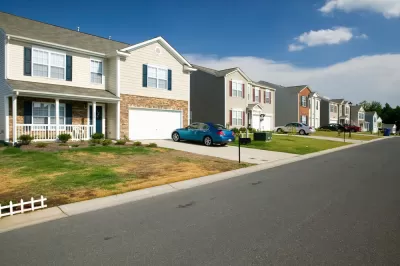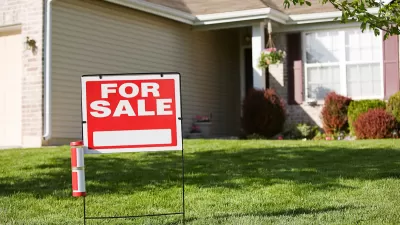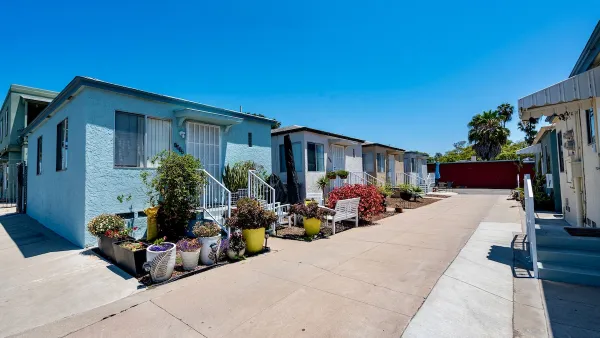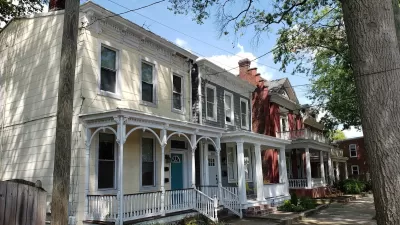If Americans viewed housing as what it essentially is, a consumable good, solutions to our ongoing affordability crisis might just present themselves. And we'd probably loosen a lot of land use regulations.

Homeownership is considered a basic component of the American Dream, but shelter is also a basic necessity. "Rising milk prices are regarded as a household tragedy for some, and spiking gas prices stoke national outrage. But whenever home prices go up, it's 'a recovery,' even though that recovery also means millions of people can no longer afford to buy."
If we didn't consider homes an investment, Conor Dougherty writes, "People might expect home prices to go down instead of up. Homebuilders would probably spend more time talking about technology and design than financing options. Politicians might start talking about their plans to lower home prices further, as they often do with fuel prices."
The piece draws from several studies, including one that finds "a standard American home should cost around $200,000, a figure that includes the cost of construction, what land would cost in a lightly regulated market, and a modest profit for developers." Another quotes the economic loss from local land use regulations at $1.5 trillion.
It may be a pipe dream, but a nationwide "rethink" around housing might also mean an end to all these bubbles. "Housing is particularly prone to bubbles because, in contrast with other products, we seem to want it more when it is expensive and less when it is cheap."
FULL STORY: Why Falling Home Prices Could Be a Good Thing

Planetizen Federal Action Tracker
A weekly monitor of how Trump’s orders and actions are impacting planners and planning in America.

Restaurant Patios Were a Pandemic Win — Why Were They so Hard to Keep?
Social distancing requirements and changes in travel patterns prompted cities to pilot new uses for street and sidewalk space. Then it got complicated.

Maui's Vacation Rental Debate Turns Ugly
Verbal attacks, misinformation campaigns and fistfights plague a high-stakes debate to convert thousands of vacation rentals into long-term housing.

In California Battle of Housing vs. Environment, Housing Just Won
A new state law significantly limits the power of CEQA, an environmental review law that served as a powerful tool for blocking new development.

Boulder Eliminates Parking Minimums Citywide
Officials estimate the cost of building a single underground parking space at up to $100,000.

Orange County, Florida Adopts Largest US “Sprawl Repair” Code
The ‘Orange Code’ seeks to rectify decades of sprawl-inducing, car-oriented development.
Urban Design for Planners 1: Software Tools
This six-course series explores essential urban design concepts using open source software and equips planners with the tools they need to participate fully in the urban design process.
Planning for Universal Design
Learn the tools for implementing Universal Design in planning regulations.
Heyer Gruel & Associates PA
JM Goldson LLC
Custer County Colorado
City of Camden Redevelopment Agency
City of Astoria
Transportation Research & Education Center (TREC) at Portland State University
Jefferson Parish Government
Camden Redevelopment Agency
City of Claremont





























